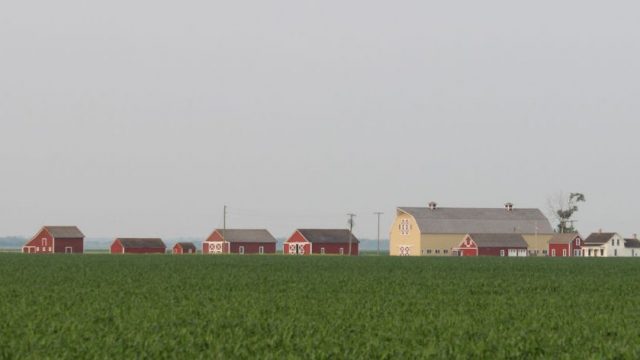Terry Wanzek: The Corporate Farming Boogeyman Does Not Exist

Measure 1 opponents want you readers to believe a “No” vote is best for family farms. As a fourth-generation family farmer, I appreciate the opponents’ concern but doubt a “No” vote will help even one family farmer.
It is simply a defense of the status quo, and North Dakota will continue to lose dairy and swine farms. The truth is, a “Yes” vote will do more to support our family farmers and also ensure that we have healthy, locally grown dairy and pork products.
Here are the facts.
Forty-one states have no laws restricting corporate farming, and eight out of the nine states that do have corporate restrictions allow exemptions for livestock.
North Dakota stands alone in banning corporate investment in any livestock operations. But the U.S. Department of Agriculture’s latest census states 97 percent of all the farms in the United States are family owned and operated and 4.5 percent are family-owned corporations.
Only 6/10 of 1 percent of all U.S. farms are corporations not owned by family farmers and ranchers, and they are smaller in average size than the family farms, according to USDA.
[mks_pullquote align=”right” width=”300″ size=”24″ bg_color=”#ffffff” txt_color=”#000000″]If Walmart or Goldman Sachs wanted to milk cows or raise hogs, they would be doing it. The corporate farm boogeyman does not exist![/mks_pullquote]
If Walmart or Goldman Sachs wanted to milk cows or raise hogs, they would be doing it. The corporate farm boogeyman does not exist!
If readers vote “Yes,” North Dakota family farmers still will be involved in the development of these livestock farms. But Measure 1 will provide them with many of the same financial, tax and risk management tools to which every other small business owner has access.
North Dakota once had more than 1,000 dairy farms with nearly 100,000 dairy cows. Now we are down to 86 dairy farms with about 16,000 cows, and our swine numbers are at the lowest levels since the 1800s.
North Dakota’s family farmers are abandoning dairy and swine farming because of the significant commitment of capital and labor necessary to develop a viable, modern-day dairy or swine farm.
North Dakota’s two remaining dairy processors need dairy production to stay open. We need more investment in the dairy and swine industry in North Dakota to spur production and help these remaining family dairy and swine operations.
Family farmers cannot do it alone. That’s why the North Dakota Dairy Coalition and the North Dakota Pork Council, representing family farmers, asked for this help from the Legislature.
The positive impact of expanding our dairy and swine operations doesn’t end there. Thousands of our North Dakota farmers grow corn and soybeans. What do dairy cows and hogs eat? Corn and soybeans!
When we develop a local market for our corn and soybeans, we put more money into the pockets of North Dakota family farmers and into North Dakota’s economy. Our alternative is to keep paying the railroad to ship our crops out of state for someone else to add value to them.
So, how does developing more local and in-state market demand for our crops hurt our family farmers? It doesn’t; it can only help.
Also, our family farmers use fertilizer. Manure is a valuable fertilizer nutrient. North Dakota State University’s swine official says it will cost a local farmer 60 percent of what it costs for commercial fertilizer to inject the manure into the soil, saving them 40 percent.
I understand that a “No” vote feels emotionally like the right thing to do. But in reality, a “Yes” vote is what will support the future growth of family farms.
North Dakota family farmers, who are enterprising and entrepreneurial, will recognize the opportunities that this legislation provides and will help rebuild our dairy and swine industries and ensure North Dakota consumers have access to locally sourced dairy and pork products.
I encourage Herald readers to support family farms by voting “Yes” on Measure 1.
State Sen. Wanzek, R-Jamestown, sponsored Senate Bill 2351, the 2015 bill that would let corporations own and operate hog and dairy farms of up to 640 acres in North Dakota. Measure 1 puts the bill up for a statewide vote on June 14.




